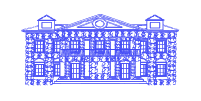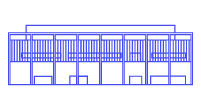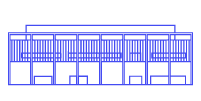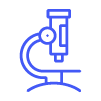
Research
research at the University of Navarra aims to provide solutions to current challenges in health, social, environmental and economic needs. Attention to people and the environment is at the center of its activity. research is carried out by multidisciplinary teams, in partnership with other centers, and with the goal of promoting transfer and innovation in the service of the common good.
University research activity
2.978
University publications in 2024.
From them:
↓
1.707
citable papers in Web of Science, 961 of which are in the first quartile.
100.496
citations received for all papers published by the University and indexed in Web of Science
University Publishing Services activity
17
journals and 43 monographs make up the Publishing Services Catalog
Volumes published last year: 16 (print and digital), 13 (digital), 3 (print).
Persona y Derecho
was accepted in ESCI (Web of Science).
Anuario Español de Derecho Internacional
was accepted in Scopus
All Publishing Services journals are in Open Alex, database core topic for the FECYT 2025 Seal.
Library Service data

volumes make up the University's bibliographic collection.
Bibliographic collection by campus

Libraries
Pamplona Campus
1.392.880

IESE
Madrid/Barcelona
35.106

Tecnun Engineering
San Sebastian
42.931

Library
Campus Madrid
3.993
Reading posts by campus

Libraries
Pamplona Campus
2.220

IESE
Madrid/Barcelona
224

Tecnun Engineering
San Sebastian
668

Library
Campus Madrid
40

88
works published last year
63.382
copies sold in 55 countries
Researchers and centres
The University of Navarra has seven specific research centers and two integrated centers that combine research, teaching and attendance.
CEIT Technology Center
*researchresearch center linked to the University of Navarre
+
Its main task is to carry out industrial projects of applied research and technological development , in partnership with the Departments of research and development of companies from various sectors (railway, aeronautics, automotive, health, manufacturing, energy or environment).
+
These data only include the activity of the seven specific research centers of the University. The rest of the research activity is carried out by the Schools and other centers.
 |
386 |
 |
757 |
 |
1066 |
 |
63.856.084 |
 |
389 |
ONE-STOP CENTERS
BOOSTING NUTRITION AND HEALTH
The University launched the Institute of Nutrition and Health (INS) to address the major global challenges in nutrition from amultidisciplinary and comprehensive approach . With more than 180 professionals, the INS integrates teaching, research and attendance, and promotes synergies between Schools and research centers of the academic center and the Clinic. Its goal is to transform scientific knowledge into real impact on the health of people and society.
research AND ONCOLOGICAL CARE
Since 2017, the Cancer Center integrates attendance, research and teaching in oncology, backed by more than 40 years of experience and the partnership of the Clinic, the Cima and several Schools. Recognized in 2025 as a " core topiccenter" in oncology research in Spain and the first non-public hospital accredited by the OECI as a comprehensive cancer center, the CCUN offers patient-centered care, promotes scientific progress and trains highly qualified professionals.
164
doctoral thesis were defended in the 2024-25 academic year.
28
is the issue of Chairs that the University has at its disposal
Grants to researchers

grants were awarded to individuals assigned to research projects
28
57,000 euros were awarded in the 2024/25 academic year for mobility to centers in 12 countries.
85
grants for staff researcher in training (PIF) were awarded by the Friends association . Of these, 24 are new and 61 are renewals.
The amount of the grants was 2,009,774.62 euros.
research and transfer projects

euros is the overall budget for the 695 current projects of all the university's centers. Of this amount, 34,352,609 euros were allocated to 182 new projects in the 2024/25 academic year.
110
21,878,231 euros in grants for researcher hiring with a budget of 21,878,231 euros
324
research and development contracts signed with companies for an amount of 23,613,024 euros.
143
new contracts for clinical trials and 141 annexes to previous contracts promoted by the pharmaceutical industry with a budget of 16,492,333 euros.
research and transfer

Health and Biomedicine
Advances in oncological therapies.
Targeted nanoparticles were developed to improve the efficacy of immunotherapies against colon and lung cancer. New therapeutic strategies against non-Hodgkin's lymphoma were also promoted, with the partnership of Roche, the Instituto de Salud Carlos III, the University of Salamanca and the Instituto de research Sanitaria de Navarra (IdisNA).
Research in metabolic and neurodegenerative health.
Collagen was shown to be an ally in weight control and metabolic health, and was able to slow the progression of Parkinson's disease in animal models by inactivating a core topic protein.
epidemiological and nutritional programs of study .
An international study led by the University linked the Mediterraneanper diem expenses with a lower risk of cancer associated with obesity, highlighting its anti-inflammatory and antioxidant effects. In addition, according to PREDIME-Plus, a Spanish multicenter clinical essay in which the University participates, Mediterranean per diem expenses with fewer calories and exercise reduces the risk of diabetes by 31%.
Malaria control with ivermectin.
The BOHEMIA essay , coordinated by Carlos Chaccour, showed in Kenya a 26% reduction in new malaria infections in children aged 5 to 15 years, supporting the use of ivermectin for malaria control.
Innovative methods for diagnosis.
An ultrasensitive technique was developed to detect residual disease in multiple myeloma and biomarkers were identified in bile to predict the risk of aggressive liver cancer.

Technology and AI
Innovation in pharmacological finding .
A team of researchers developed GENNIUS, an advanced AI system for predicting drug interactions more accurately, in partnership with Stanford University.
AI against cancer.
Scientists at the University developed an artificial intelligence tool to personalize cancer therapies. The "IFIT index", which measures the immunological aptitude of cancer patients at each stage of the disease.

Education and society
Read with purpose.
The University led the European project REMAP: Reading for Meaning and Purpose, an Erasmus+ supported initiative that developed educational resources to encourage more critical and meaningful reading among university students.
educational welfare.
The academic center developed the educational Well-Being assessment Battery (EBE) to identify factors that affect the well-being and performance of high school diploma and college students. In addition, ICS research highlighted the need for programs to prevent and promote student mental health, revealing that 40% of university students present mild symptoms of anxiety and 35% of depression.
Secure digital environment.
The University participated in the committee of experts of the Ministry of Youth and Children, in charge of drafting a national report on the protection of minors and young people in the digital environment.
Mass behavior.
A study on the Sanfermines with the participation of the University, published in Nature, concluded that the behavior of crowds can be predicted when the density is high, providing clues for risk prevention in mass events.

Environment and sustainability
Dark diversity.
A global study published in Nature by the BIOMA Institute revealed the hidden impact of human activities on biodiversity, showing that natural vegetation lacks many species in heavily impacted areas.
Influence of the urban environment on health.
Joint research by BIOMA and Sanitas estimated that nearly 30,000 people in Spain fall ill or die each year from causes related to environmental pollution.
Sustainable fertilizers.
The BIOMA Institute discovered keys to developing more efficient and sustainable fertilizers, contributing to environmentally friendly agriculture.
Atlas of Palliative Care in Asia-Pacific.
The Institute for Culture and Society (ICS), together with ATLANTES and WHO, presented a study that reveals major inequalities in the distribution of palliative services in the region.
Alliances and agreements

Tecnun created the Chair business Tecnun-SAPA to promote research in high speed gears.

Agreements with four European universities to research military orders during the average and Modern Ages.

The Institute for Culture and Society signed an agreement with the Government of Navarra and DIRIME to research communication patterns in family mediation.

The School of Pharmacy and Nutrition signed an agreement with the Officialhigh school of Dietitians and Nutritionists of Navarra (CODINNA) to promote training and research in nutrition and dietetics.

The Botín Foundation and the University signed an agreement to promote the development ofnew advanced therapies against blood cancers.

The Spanishassociation Against Cancer (AECC) and the Cancer Center Clínica Universidad de Navarra (CCUN) signed an agreement to promote humanization in the care of cancer patients and their families.

The School of Architecture and the Observatory of Healthy Architecture signed an agreement to promote training and awareness of how spaces affect physical and mental health.
Outstanding awards

Marta Alonso received the XIV Doctores Diz Pintado National Cancer research award , as well as the Dr. Antoni Esteve Foundation research award , shared with Iker Ausejo, for her advances in the field of cancer immunotherapy.

Jesús López Fidalgo was awarded the SEIO-Fundación BBVAaward for the best article on applied statistics, a prize he shared with two other co-authors.

Marta Ormazabal was honored in the first edition of Women of Gipuzkoa for Sustainability for her career and contributions to sustainable development .

Jaime Nubiola became the first Spanish philosopher to receive an award from the American Philosophy Society in recognition of his academic and dissemination career.

María Teresa Gil Bazo was appointed Chair Jean Monnet ad personam in European programs of study , granted by the European Commission.

Luis Alberiko Gil-Alaña received the doctorate Honoris Causa from the University of Huelva, in recognition of his contribution to research and teaching in econometrics.

Marta Ferrer was awarded by the European Academy of Allergy for her scientific leadership on chronic urticaria and angioedema.

Jesús de la source received the Barry J. Zimmerman 2025 award for his contribution to the study of self-regulated learning.








